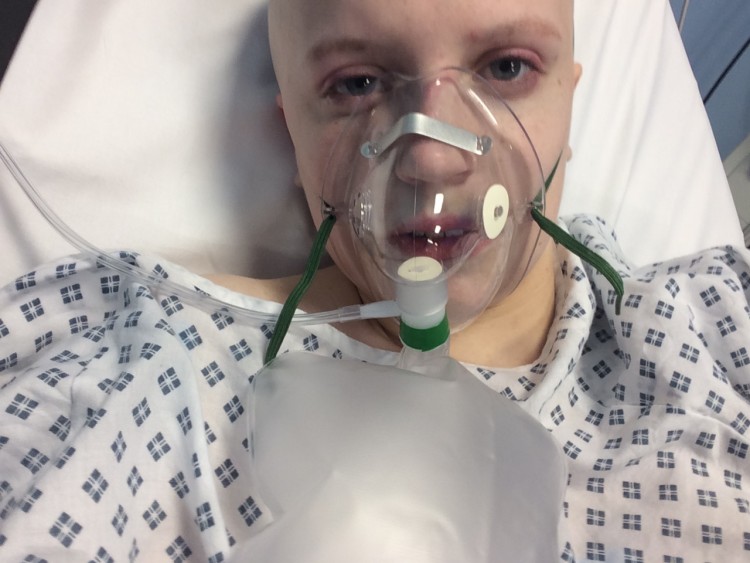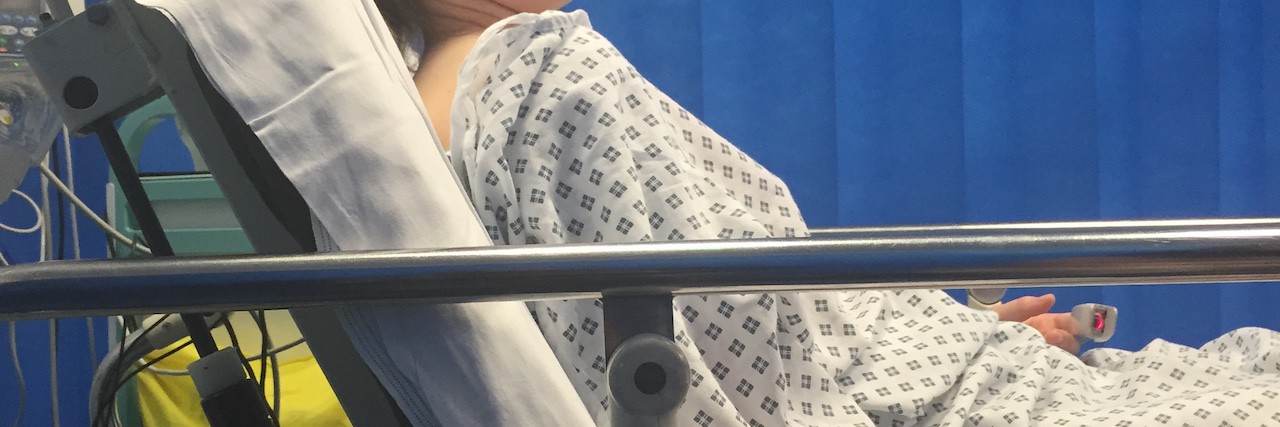
“What’s dying really like?”
The girl standing in front of me asking this question couldn’t have been more than five or six. She was dressed in her school uniform with her beautiful fair hair braided back, her hand grasping her book bag.
She then corrected herself.
“What’s nearly dying like?”
“Should I be scared of dying or is it OK?”
This beautiful little girl was asking questions most adults are too scared to ask. I reassured her. I told her not to be scared. I came up with a short explanation to answer her initial question which she seemed happy to accept, and then she left for school.
You would have thought that would be it, wouldn’t you? However her question kept playing over in my mind. Should I be scared?
I’ve learned the hard way you shouldn’t fear death. It’s inevitable. That’s right, I said it: I do not fear death. However, I do fear suffering. Suffering to death is different than actually dying. I can recall several frightening times battling for my life — in so much pain, so much suffering. Death almost felt like it would be a welcome relief from my suffering at that moment, but I’m far too stubborn to let this condition beat me. That’s why I’m still here, still fighting.
Until last September I would have told you that I had experienced a few “close calls,” times with anaphylactic reactions, when I had suddenly swelled up and stopped breathing or was very unwell. However, I can now name just one. It was a definite near death experience, the kind you read in books and think it’s dramatic, but I assure you it happens. Bear with me on this one. I can assure you this is exactly what I experienced, and it’s something that’s taken me almost eight months to talk about.
I refer to it as “The Midnight Reaction.”
The name isn’t to make it more dramatic, it is just a way to describe one particular reaction that occurred just after midnight.
It started as my normal life threatening reaction: throat swelling, tongue swelling and feeling very yucky. The two doctors that had been called gave medication, even nebulized adrenaline, but I could feel myself getting worse. I could feel my lungs get smaller and smaller with every breath. My tongue was swelling so rapidly I was gagging on it and my vision became more and more grey. I was scared, but I felt myself fighting it. I wasn’t giving in. This is normally where I start to improve after intramuscular adrenaline. However, this time it was different.

What I experienced next was probably more frightening that anything I had already experienced before. I felt like I was breathing with lungs the size of a pound coin, desperately trying to suck any air I could get into them. And then, all of a sudden I felt very calm, very relaxed. I wasn’t fighting it anymore, I didn’t need to. I felt warm and comforted. I wasn’t scared.
My eyes were shut, but I could see clearly everything that was going on around me — a cardiac arrest call was put out, people came running and the crash cart smashing into my bed made the bed jolt. I could feel them putting on defibrillator pads on my chest; they were cold. More and more people ran to my bedside. An anaesthetist arrived who called another anaesthetist, who then called another. Nurses seemed to appear from nowhere. Various levels of doctors were now there. Some were putting lines in, others giving medication, others crushing fluid bags into my IVs. And there was one to stood by my head leaning over me listening to my chest with his stethoscope the whole time, relaying his findings to the others in the room. I counted them. Twenty-two. Twenty-two people, most of whom had just come running to help a complete stranger. How amazing is that?

Eight minutes, four liters of IV fluids and a ridiculous amount of medication later, I opened my eyes. Things were grey. I was shaking and then began vomiting. I sat up and leaned over the giant sick bowl. A doctor was holding my hair out of the way. I felt so scared with all the adrenaline coursing through my veins. I recovered. I took some deep breaths, grateful that I could. I then lay back in the bed and smiled at the room full of very relieved people. They made comments like “You’re looking better,” and “Just keeping us on our toes were you?” I made an extra effort to smile and chat back, trying to reassure them.
So, just like the little girl asked, that’s what, for me anyway, nearly losing my life to this condition was. When it came to it, I wasn’t scared. I was calm and comfortable.
Whatever you believe caused this experience, whether it be hypoxia, medication or a higher power, I hope you take one thing away from it:
Do not fear death.
Follow this journey on Natasha Coates
The Mighty is asking the following: What’s one commonly held opinion within the community surrounding your disability and/or disease (or a loved one’s) that doesn’t resonate with you? Check out our Submit a Story page for more about our submission guidelines.

